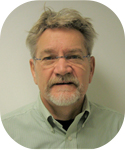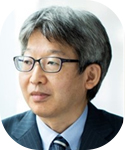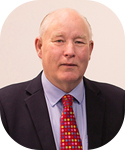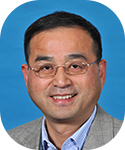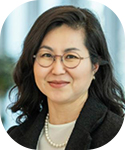Singapore Institute of Food and Biotechnology Innovation, Singapore
Prof. Tatsuya Shimizu is now Director & Professor, Institute of Advanced Biomedical Engineering and Science, Tokyo Women's Medical University (TWMU). He graduated from Faculty of Medicine, the University of Tokyo and got medical doctor (M.D.) in 1992. After two-year clinical training, he made a specialty of cardiovascular medicine including catheterization and got Ph.D in 1999. After that, he moved to TWMU and started the research of tissue engineering based on “cell sheet technology”. Especially, he has engaged in myocardial tissue engineering and successfully fabricated beating myocardial tissues. Recent works are engineering thick vascularized tissues and 3-D tissue model systems for heart, liver and kidney. Furthermore, he has started the research for cultivated meat production since 2017. Now he is leading several cultivated meat national projects, in particular the development of a circulating cell culture system using algae and animal cells. Based on these achievements, he has published about 250 papers (H-index 63) and received several awards in the fields of cardiology and regenerative medicine.
Singapore Institute of Food and Biotechnology Innovation, Singapore
Title: Food oral processing and sensory perception
Jacobs and former NASA, USA
Prof. Tatsuya Shimizu is now Director & Professor, Institute of Advanced Biomedical Engineering and Science, Tokyo Women's Medical University (TWMU). He graduated from Faculty of Medicine, the University of Tokyo and got medical doctor (M.D.) in 1992. After two-year clinical training, he made a specialty of cardiovascular medicine including catheterization and got Ph.D in 1999. After that, he moved to TWMU and started the research of tissue engineering based on “cell sheet technology”. Especially, he has engaged in myocardial tissue engineering and successfully fabricated beating myocardial tissues. Recent works are engineering thick vascularized tissues and 3-D tissue model systems for heart, liver and kidney. Furthermore, he has started the research for cultivated meat production since 2017. Now he is leading several cultivated meat national projects, in particular the development of a circulating cell culture system using algae and animal cells. Based on these achievements, he has published about 250 papers (H-index 63) and received several awards in the fields of cardiology and regenerative medicine.
Jacobs and former NASA, USA
Title: Practical space food systems in support of exploration
Harvard Medical School, USA
Prof. Tatsuya Shimizu is now Director & Professor, Institute of Advanced Biomedical Engineering and Science, Tokyo Women's Medical University (TWMU). He graduated from Faculty of Medicine, the University of Tokyo and got medical doctor (M.D.) in 1992. After two-year clinical training, he made a specialty of cardiovascular medicine including catheterization and got Ph.D in 1999. After that, he moved to TWMU and started the research of tissue engineering based on “cell sheet technology”. Especially, he has engaged in myocardial tissue engineering and successfully fabricated beating myocardial tissues. Recent works are engineering thick vascularized tissues and 3-D tissue model systems for heart, liver and kidney. Furthermore, he has started the research for cultivated meat production since 2017. Now he is leading several cultivated meat national projects, in particular the development of a circulating cell culture system using algae and animal cells. Based on these achievements, he has published about 250 papers (H-index 63) and received several awards in the fields of cardiology and regenerative medicine.
Harvard Medical School, USA
Title: Mapping the complexity of the food systems: Insights and innovations from the Foodome Project
Daesang Corporation, Korea
Prof. Tatsuya Shimizu is now Director & Professor, Institute of Advanced Biomedical Engineering and Science, Tokyo Women's Medical University (TWMU). He graduated from Faculty of Medicine, the University of Tokyo and got medical doctor (M.D.) in 1992. After two-year clinical training, he made a specialty of cardiovascular medicine including catheterization and got Ph.D in 1999. After that, he moved to TWMU and started the research of tissue engineering based on “cell sheet technology”. Especially, he has engaged in myocardial tissue engineering and successfully fabricated beating myocardial tissues. Recent works are engineering thick vascularized tissues and 3-D tissue model systems for heart, liver and kidney. Furthermore, he has started the research for cultivated meat production since 2017. Now he is leading several cultivated meat national projects, in particular the development of a circulating cell culture system using algae and animal cells. Based on these achievements, he has published about 250 papers (H-index 63) and received several awards in the fields of cardiology and regenerative medicine.
Daesang Corporation, Korea
Title: Learnings from a big global company - what may be useful for us?
